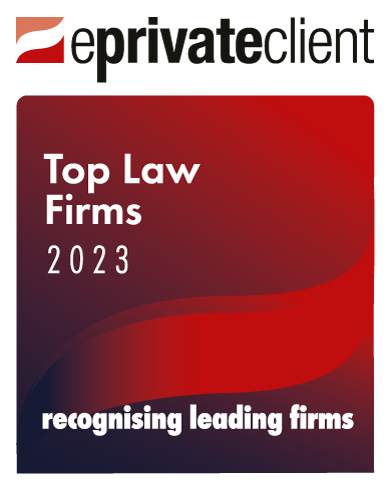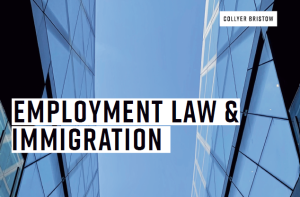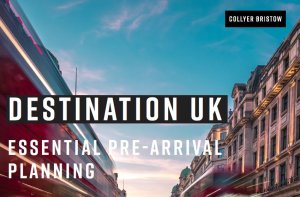
The Team
Our lawyers have the expertise and experience to provide you with creative, personalised solutions in a clear and understandable way.
Our Publications
Discover a wealth of invaluable guidance in the form of guides and brochures written by our expert lawyers.
Your fast-track to citizenship
Our team will guide you skillfully through the process with the aim of helping you realise your goal of British citizenship sooner than you think.
About
Bespoke solutions to support global mobility
Whether you are a wealthy individual looking to move with your family, an entrepreneur choosing to expand your business, or an established organisation transferring employees from overseas, you should work alongside a team of immigration law experts who can provide creative, strategic guidance to make this process as smooth as possible.
Our team of immigration solicitors, based in London, offers a personal and tailored service to private clients and businesses. With a thorough knowledge of the UK immigration rules and by gaining a full understanding of your unique circumstances and priorities, we can determine the route which best fits your requirements from across the UK visa tiers. We then guide you practically and pragmatically through the immigration process, also advising on any relevant tax planning implications.
Immigration services for individuals
For high net worth individuals and their families making the decision to relocate, solutions may involve the Innovator Founder or Global Talent visa routes, student or working visas, or an application for a family visa for a partner and potentially children or other dependants. If you have already lived here for a time, our team can also advise on the extension of an existing UK visa or applications for permanent residence, indefinite leave to remain and citizenship.
Business immigration
We also provide innovative advice to businesses looking to recruit nationals from abroad or to transfer employees to the UK from an overseas office. This may include obtaining and managing a sponsor licence for an employer, submitting applications for Skilled Worker or Senior/Specialist Worker visas for sponsored employees under the points based system, arranging visas for temporary workers, or obtaining Expansion Worker visas for companies sending their first employee to the UK to grow the business.
Brexit
For businesses employing people from the EU or EU nationals running businesses in the UK, Brexit required changes to be made to how your business operates. Our team can ensure you understand how Brexit has affected your business and that you have a plan to address it. For individuals, our team can support you and any dependants in applying for permanent residency in the UK.
Please visit our price & service information page for more information regarding these services.
Spotlight
Sponsor licence applications
Where UK businesses want to employ nationals from outside the European Economic Area and Switzerland, they are likely to need a sponsor licence to be able to do so. To be successful in applying for the licence, an employer must be able to show that it is a genuine and legitimate organisation, that it poses no risk to immigration control, and that it has robust systems in place to be able to comply with its sponsorship duties. We regularly advise employers on these applications, ensuring that they have the correct supporting documentation in place, that they appoint the relevant key personnel required for the licence, and that they have the necessary monitoring and record-keeping systems in place to meet their sponsor requirements.
Spotlight
Tier 1 visa applications
“Wealthier individuals can use the Tier 1 Investor visa route to come to the UK. By investing a minimum of £2m in UK trading companies, successful applicants can live, work and study in the UK. The rules governing these visas have been subject to recent revisions, so we advise applicants in navigating a course through the latest changes. We also combine this advice with careful estate planning, to minimise the exposure to UK taxes once the applicant is in the UK.
Other recent changes have ended the Tier 1 Entrepreneur visa category, replacing it with new Innovator or Start-up visas. These visas are nascent concepts, so it is important that careful advice is sought to ensure a successful application.”
Spotlight
Tier 2 visa applications
Where a UK business holds a sponsor licence, it can employ overseas workers in the UK to carry out specific skilled roles. We advise employers on obtaining the relevant ‘certificate of sponsorship’ required for each visa holder and guide them and their future employees through the application process. Where necessary, this involves advising on compliance with the ‘resident labour market test’, whereby a role must first be offered to a worker from the UK or the EU, unless an exception applies. We also advise on ‘intra-company transfer’ visas, where employees of an overseas business come to work for a group company in the UK. These applications commonly involve contemporaneous applications from family members accompanying the main visa holder to the UK.
Services
We support our clients with individually tailored legal advice, in areas such as:
- Skilled Worker Visa
- Spouse Visa
- Permanent Residence/ Indefinite Leave To Remain
- Citizenship
- Post-Brexit Immigration
- Sponsor Licence
- Skills Threshold
- Immigration For HNWI And UHNWI
- Recruiting From Abroad
- Innovator Founder Route
- Corporate Immigration
- Personal Immigration
- Global Business Mobility Visa
- Expansion Worker
- Senior or Specialist Worker Visa
- Family Visa
- Graduate Visa
- High Potential Individual Visa
- Minister of Religion Visa
- Global Talent Visa
- Scale-Up Visa
- Tier 5 Creative and Sporting Visa
- UK Ancestry Visa
- Tier 2 International Sportsperson Visa
Skilled Worker Visa
Post-Brexit, most businesses looking to hire non-UK residents will do so via the Tier 2 Skilled Worker route. This points-based visa is for workers who hold a skilled job that cannot be filled by a UK resident. The role itself must meet certain eligibility requirements, including:
– Be an approved job with an occupation code
– Be skilled to at least RQF level 3 (roughly equivalent to A-levels)
– Pay the minimum salary threshold, currently £26,200 per year with a few exceptions, unless the going rate is higher. The minimum equivalent hourly rate will increase from at least £10.10 per hour, to at least £10.75 per hour.
There’s no longer an annual cap on the number of skilled worker visas. However, it is important that businesses obtain a valid sponsor licence from the Home Office and ensure their roles qualify as relevant jobs. We offer guidance for both employers and employees; please talk to us about your needs.
Spouse Visa
The spouse visa allows foreign nationals who are married and in a genuine relationship with a British citizen to reunite with their spouse or civil partner in the UK. It lasts for 33 months and can be extended and used as qualifying time for permanent settled status. The spousal visa is a type of ‘family’ visa. As such, it is not points-based like work and study visas, although holders are eligible to take up work in the UK.
For unmarried partners, there are two routes to UK entry, the fiance visa or the unmarried partner visa. They function in a similar way to the spouse visa.
Permanent Residence/ Indefinite Leave To Remain
Permanent Residence is also known as Indefinite Leave to Remain (ILR). This immigration status allows you to live and work in the UK free of immigration restrictions, with no time limits on your stay. If you are in the UK under a Tier 1 or Tier 2 work visa, you can generally apply for ILR after five years of continuous residence.
There are various routes to achieving ILR status. For instance, you may be able to use the time accrued on a Skilled Worker Visa or Startup Visa towards your permanent residence, or you can apply on a Spouse or Unmarried Partner Visa if you meet the requirements. Different requirements apply depending on the type of visa you currently hold; please speak to our team about your situation.
Citizenship
If you have held Indefinite Leave to Remain or EU Settled Status for a minimum of 12 months, then you may be able to apply for British Citizenship. This entitles you to the full rights of a British person including the right to live, work, study and vote in the UK, access public services and funds, and apply for a British passport. You can also spend as much time as you wish outside the country without compromising your citizenship status.
You may also be eligible for citizenship if you have a British parent or are married to a British citizen and have three years of continuous residence as a settled person.
The process of applying for citizenship is known as Naturalisation. You’ll need to provide various documents in your application to prove you meet the requirements, which vary depending on your current status. Our immigration lawyers can guide you through the process and ensure that if you’re eligible, your application will succeed.
Post-Brexit Immigration
Post-Brexit, any EU or EEA national who wants to work in the UK must apply for a relevant visa and meet all the criteria before they work in the country. This will be a Skilled Worker Visa in most cases. Businesses that rely on foreign workers from the EU must now take on additional responsibilities as a visa sponsor and ensure that a certificate of sponsorship is correctly assigned to the relevant employee. Our immigration lawyers can guide your business throughout the process. We can also advise on the best way to structure your business in order to minimise the impact of Brexit.
Sponsor Licence
Businesses that are located in the UK must obtain a sponsor licence from the Home Office to employ foreign nationals under Tier 2 or Tier 5 points-based visas. This includes both skilled and temporary workers. Once approved, you will have the power to grant Certificates of Sponsorship for specific employees.
Once an employee is sponsored, the business becomes wholly responsible for ensuring that the migrant adheres to the conditions of their visa and does not overstay their visa period. This presents certain risks and responsibilities for businesses, so it’s important to take specialist advice.
Skills Threshold
Post-Brexit, access to most UK visas is via the points-based system. Under this system, points are awarded for relevant job offers, education and English language competency. Businesses can sponsor jobs that have a suitable skill level and pay rate, and meet the other criteria needed for the visa.
The skills threshold is constantly being reviewed to ensure that it remains effective in meeting the needs of the UK economy while protecting domestic workers from competition from overseas. Currently, to secure a Skilled Worker visa, workers have to qualify for 70 points and be skilled to at least level 3 on the Regulated Qualifications Framework. This is roughly equivalent to A-levels.
If you hire from overseas, please talk to us. We can help you establish an appropriate strategy for your business in line with all the necessary Home Office requirements to ensure the smooth running of your business in the UK.
Immigration For HNWI And UHNWI
The UK government recently shut down the Tier 1 Investor visa, which was a popular immigration route for high net worth individuals and ultra high net worth individuals looking to settle in the UK. It is not yet known whether a new version of the Investor visa will be created or whether an alternative scheme will arise in its place.
For HNWI and UHNWIs, there are other attractive immigration categories that can ensure your ability to live and work in the UK. These include the Global Talent visa for leaders with exceptional credentials and the Innovator visa for those who wish to set up and run a new and innovative venture in the UK. We can advise on the best options based on your individual circumstances and needs.
Recruiting From Abroad
To recruit from abroad as a UK-based business, you must be a Home Office licenced sponsor with the power to issue a Certificate of Sponsorship. The job you offer must meet the minimum salary and skill threshold, as well as any other requirements that apply. These will vary depending on whether you bring people in through the Skilled Worker route, which is the main route through which British businesses recruit overseas workers, or you are facilitating secondments or transfers from an overseas division.
To recruit from overseas, the job must pass the Resident Labour Market Test, proving that there is no applicant among the domestic workforce. Certain roles included on the Shortage Occupation list may be offered directly to non-resident employees. Our team of expert lawyers are experienced in all aspects of overseas recruiting. We can help assess the role and the individual you intend to hire, ensure the employee meets all the necessary requirements and you are fulfilling your sponsorship duties correctly.
Innovator Founder Route
A new Innovator Founder route, for those seeking to establish an innovative business in the UK, is being introduced tomorrow (13 April 2023). This will replace the current Innovator and Start-up routes which will be closed to new applicants from that date, although new applications under the Start-up route will continue to be considered until 13 July 2023, where supported by endorsements issued before 13 April 2013.
The changes aim to make the criteria applicable under the current Innovator route more flexible. Under the new Innovator Founder route, an entrepreneur’s business plans will still need to be endorsed by a registered endorsing body, but the current £50,000 minimum funds requirement under the Innovator route will be removed. Individuals will also be able to engage in employment outside of running their business, provided that this secondary employment is in a skilled role of at least RQF Level 3 (A level or above).
Settlement will also be possible under the new route after spending three years continuously resident in the UK.
Corporate Immigration
Obtaining immigration clearance is vital for businesses that rely on foreign workers to meet their business needs. Our corporate immigration team advises national and international businesses on skilled worker visas, sponsor licences and temporary worker applications, and provides strategic guidance on the best route for bringing overseas workers into the UK. Alongside visa applications, we can support you with legal compliance, extensions of stay, right to work consultancy, human resources training, and challenging Home Office rejections and enforcement action.
Personal Immigration
Understanding the ever-changing immigration rules can be challenging for businesses, let alone individuals. We cover the full spectrum of immigration services for people who are going through the process of immigrating to the UK. We can advise you on the best strategies for relocating to the UK, applying for visas and appeals against rejected applications, as well as start up, innovator and spouse visas, settled status confirmation and citizenship applications. Our dedicated team offers a bespoke service with the aim of making the process as straightforward and hassle-free as possible.
Global Business Mobility Visa
The Global Business Mobility sponsored visa is an important and flexible tool that allows businesses to move their key personnel to the UK. It can be used for a variety of purposes including training and development, setting up a new business, or expanding an existing business to the UK. The scheme has five different subcategories aimed at different types of employees, including:
- Senior or Specialist Workers
- Graduate Trainees
- UK Expansion Workers
- Service Suppliers
- Secondment Workers
There are various eligibility requirements for each role, for both the employer and the employee. For specialist advice, please speak to our business immigration team.
Expansion Worker
The UK Expansion Worker is a subcategory of Global Business Mobility visa. It is intended to help businesses who wish to set up in the UK by making it easier for them to bring in senior managers or specialist employees who already work for the overseas business on a temporary basis. If the business is already established in the UK, then employees should apply under the Senior or Specialist Worker route instead.
Senior or Specialist Worker Visa
Senior managers and specialist employees who are temporarily assigned to a UK business that’s linked to their employer overseas will enter the UK via the Senior and Specialist Worker route. This route replaces the existing Intra-Company Transfer visa which closed to new applicants on 11 April 2022.
Eligibility stems from the role, salary and previous work history with the company. Generally, a person becomes eligible after working for their employer for 12 months above an appropriate skill level. The sponsored job must pay at least £45,800 annually or the ‘going rate’ for the job, whichever is higher.
Family Visa
You may qualify for a family visa if you wish to join your spouse, partner or other relatives in the UK, either permanently or for shorter visits. There are many types of family visas that fall under different immigration categories. Each varies in eligibility, cost and complexity – as a minimum, you will need to prove your relationship to your UK relative. To find out more about the different types of family visas, please call our expert immigration team.
Graduate Visa
A graduate visa allows international students to stay in the UK for up to two years after completing their studies. To be eligible, you must already hold a Student visa or Tier 4 (General) student visa and apply for a Graduate visa before your current visa expires. If you successfully completed a PhD program, your Graduate visa may last for up to three years. The Graduate visa category is seen as a valuable pathway to long-term settlement in the UK. For more information, please speak to a member of our business immigration team.
High Potential Individual Visa
The High Potential Individual visa is designed to attract top graduates from around the world in order to boost talent in the UK. Applicants do not need a job offer or points to be eligible, but they must hold the equivalent of a UK bachelor’s degree or higher from an eligible global university, earned within the past five years. The application process depends on whether you are outside the UK or already in the UK and planning to switch from another visa route. Our expert immigration team can provide guidance.
Minister of Religion Visa
If you are looking to work full-time in the UK as a religious worker or missionary, then you can apply for a Tier 2 Minister of Religion Visa, which is a type of Skilled Worker visa. You will need a points score of 70, of which 50 may come from a relevant job offer from a registered UK Sponsor. Minister of Religion visas are typically valid for up to three years.
Global Talent Visa
The Global Talent visa provides a fast-track route for world-leading doctors, scientists, engineers, academics and other professionals to live and work in the UK, as either employed or self-employed. The application can be rigorous and requires an endorsement from an appropriate body, such as the Royal Academy of Engineering or the British Academy. Our specialist immigration team can prepare your visa application, endorsements and evidence at the highest standard to maximise your chances of a successful application.
Scale-Up Visa
The Scale-up Visa is for talented individuals recruited by a UK Scale-up Sponsor, who have the skills needed to enable the Scale-up business to continue growing.
The applicant will need to have a highly-skilled job offer from a qualifying Scale-up business at the required salary level. The Home Office will publish a list of jobs that are eligible for the Scale-up route.
The Scale up route does lead to settlement in the UK.
The Scale-up Visa route offers both a Sponsored Application route and an Unsponsored Application route. The Unsponsored Application route is only available to applicants who have previously been granted permission as a Scale-up Worker.
Tier 5 Creative and Sporting Visa
Under the Tier 5 Creative worker visa, a creative worker is defined as someone who works in the creative industries, for example an actor, dancer, musician or film crew member.
This visa can be granted for a maximum of 12 months.
An applicant needs all of the following to be
eligible for the creative worker category:
• make a unique contribution to the UK labour market, for example they are internationally renowned or are required for continuity;
• have a certificate of sponsorship reference number;
• be paid the minimum salary as set by Equity, PACT or BECTU (except for models, musicians or circuses); and
• have enough money to support themselves in the UK – they will usually need to have at least £1,270 available (unless you’re exempt).
• Tier 5
UK Ancestry Visa
An applicant can apply for a UK Ancestry visa if they are one of the following: a Commonwealth citizen, a British overseas citizen, a British overseas territories citizen, a British national (overseas), a citizen of Zimbabwe.
• To be eligible you must be able to prove that one of your grandparents was born in the UK, the Channel Islands or the Isle of Man.
• The applicant must prove that they are 17 or over, have enough money without help from public funds to support and house themselves and any dependants and can and plan to work in the UK.
The applicant must show that they have a grandparent born in one of the following circumstances:
• in the UK, the Channel Islands or the Isle of Man
• before 31 March 1922 in what is now Ireland
• on a ship or aircraft that was either registered in the UK or belonged to the UK government
The applicant can claim UK ancestry if:
• they or their parent were adopted
• their parents or grandparents were not married.
• The applicant cannot claim UK ancestry through step-parents.
• The Visa is granted for 5 years and then the applicant can apply for permanent residence and then 12 months after this, they can apply to naturalise to become a British Citizen.
• The applicant can bring their spouse and children with them to the UK (children must be under 18 years old).
Tier 2 International Sportsperson Visa
The Tier 2 sportsperson visa is a common visa route for professionals in sports such as football.
The applicant can apply for an International Sportsperson visa if all of the following apply:
• They are an elite sportsperson or qualified coach, who’s recognised by their sport’s governing body as being at the highest level of their profession internationally.
• The sport’s governing body is endorsing their application.
• Their employment will develop their sport in the UK at the highest level.
Am I eligible?
• The applicant must have a valid certificate of sponsorship;
• be able to prove that they can speak and understand English, if they are applying to stay for longer than 12 months;
• have personal savings of at least £1,270 in a personal bank account so they can support themselves when they arrive in the UK.
• show they can travel and show their travel history over the last 5 years.
• have a tuberculosis test certificate.
This visa can lead to settlement in the UK after 5 years.
Quick glance: publications
- Employment and Immigration Expertise
- CB Destination UK: essential pre-arrival planning
- Coming to the UK visa categories – Student Visa guide
- Coming to the UK visa categories – Complete guide
- Healthcare and care worker visa
- Hong Kong (British nationals overseas visa) UK immigration guide
- Coming to the UK visa categories – Individual guide
Immigration Publications
Employment and Immigration Expertise
An overview of our Employment and Immigration services.
CB Destination UK: essential pre-arrival planning
Collyer Bristow is highly experienced in acting for HNW/UHNW individuals looking to relocate or return to the UK. This document outlines the key tax, estate planning and immigration areas which may be relevant to you, your clients or your employees when moving to the UK.
Coming to the UK visa categories – Student Visa guide
Considering an education in the UK? This guide covers all the different visa options available to students.
Coming to the UK visa categories – Complete guide
Considering a move to the UK? This guide covers all the different visa options available to individuals and businesses for a worry-free relocation.
Healthcare and care worker visa
For applicants who will work for the NHS / NHS suppliers, this guide provides a step-by-step process on how to obtain the Tier 2 Health and Care Worker Visa.
Hong Kong (British nationals overseas visa) UK immigration guide
Curious about the new Hong Kong BN(O) Visa and how this can apply to you? Find out more in our Hong Kong BN(O) Visa UK immigration guide.
Coming to the UK visa categories – Individual guide
Considering a move to the UK? This guide covers all the different visa options available to individuals for a worry-free relocation.
Immigration insights
Longer Reads
Demystifying the new UK visa rulesDemystifying the new UK visa rules
Read more
Podcasts
Relocation, Relocation, Relocation!Relocation, Relocation, Relocation!
Listen now
Podcasts
Americans moving to London: Dealing with UK visasAmericans moving to London: Dealing with UK visas
Listen now
Longer Reads
Destination UK: Tax tips & relocation adviceDestination UK: Tax tips & relocation advice
Read more
Longer Reads
Unlocking the Potential of the UK: A Comprehensive Guide for High Net Worth IndividualsUnlocking the Potential of the UK: A Comprehensive Guide for High Net Worth Individuals
Read more
Longer Reads
British Nationality Bill confirms citizenship of children born to EEA parentsBritish Nationality Bill confirms citizenship of children born to EEA parents
Read more
Shorter Reads
Immigrant using former UK Tier 1 Investor Visa refused leave to remain applicationImmigrant using former UK Tier 1 Investor Visa refused leave to remain application
Read more
Longer Reads
Does the UK need to replace axed Tier 1 Investor Visa?Does the UK need to replace axed Tier 1 Investor Visa?
Read more
News
Collyer Bristow strengthens international offering with Immigration hireCollyer Bristow strengthens international offering with Immigration hire
Read more
Shorter Reads
Golden Visas: Scrapped within weeksGolden Visas: Scrapped within weeks
Read more
Shorter Reads
Novak Djokovic: the importance of getting your visa application right!Novak Djokovic: the importance of getting your visa application right!
Read more
Podcasts
UK USA: Crossing the PondUK USA: Crossing the Pond
Listen now
You might also like
Need some more information? Make an enquiry below
Immigration key contacts
- Charles
AvensPartner - Head of Immigration
Talk to Charles about Immigration
Immigration
Business Immigration Lawyers
In today’s world in which people and their business affairs are increasingly international, immigration plays a critical role. However, the legal framework governing global mobility is constantly changing and, with Brexit adding another layer of complexity, it is becoming an ever more challenging field for individuals and organisations to navigate.
The Team
Our lawyers have the expertise and experience to provide you with creative, personalised solutions in a clear and understandable way.
Our Publications
Discover a wealth of invaluable guidance in the form of guides and brochures written by our expert lawyers.
Your fast-track to citizenship
Our team will guide you skillfully through the process with the aim of helping you realise your goal of British citizenship sooner than you think.
BESPOKE SOLUTIONS TO SUPPORT GLOBAL MOBILITY
Whether you are a wealthy individual looking to move with your family, an entrepreneur choosing to expand your business, or an established organisation transferring employees from overseas, you should work alongside a team of immigration law experts who can provide creative, strategic guidance to make this process as smooth as possible.
Our team of immigration solicitors, based in London, offers a personal and tailored service to private clients and businesses. With a thorough knowledge of the UK immigration rules and by gaining a full understanding of your unique circumstances and priorities, we can determine the route which best fits your requirements from across the UK visa tiers. We then guide you practically and pragmatically through the immigration process, also advising on any relevant tax planning implications.
Immigration services for individuals
For high net worth individuals and their families making the decision to relocate, solutions may involve the Innovator Founder or Global Talent visa routes, student or working visas, or an application for a family visa for a partner and potentially children or other dependants. If you have already lived here for a time, our team can also advise on the extension of an existing UK visa or applications for permanent residence, indefinite leave to remain and citizenship.
Business immigration
We also provide innovative advice to businesses looking to recruit nationals from abroad or to transfer employees to the UK from an overseas office. This may include obtaining and managing a sponsor licence for an employer, submitting applications for Skilled Worker or Senior/Specialist Worker visas for sponsored employees under the points based system, arranging visas for temporary workers, or obtaining Expansion Worker visas for companies sending their first employee to the UK to grow the business.
Brexit
For businesses employing people from the EU or EU nationals running businesses in the UK, Brexit required changes to be made to how your business operates. Our team can ensure you understand how Brexit has affected your business and that you have a plan to address it. For individuals, our team can support you and any dependants in applying for permanent residency in the UK.
Please visit our price & service information page for more information regarding these services.
Charles AvensPartner - Head of Immigration
View Charles Avens's profileCharlie FowlerPartner
View Charlie Fowler's profileSPOTLIGHT
Sponsor licence applicationsopen
Where UK businesses want to employ nationals from outside the European Economic Area and Switzerland, they are likely to need a sponsor licence to be able to do so. To be successful in applying for the licence, an employer must be able to show that it is a genuine and legitimate organisation, that it poses no risk to immigration control, and that it has robust systems in place to be able to comply with its sponsorship duties. We regularly advise employers on these applications, ensuring that they have the correct supporting documentation in place, that they appoint the relevant key personnel required for the licence, and that they have the necessary monitoring and record-keeping systems in place to meet their sponsor requirements.
Tier 1 visa applicationsopen
“Wealthier individuals can use the Tier 1 Investor visa route to come to the UK. By investing a minimum of £2m in UK trading companies, successful applicants can live, work and study in the UK. The rules governing these visas have been subject to recent revisions, so we advise applicants in navigating a course through the latest changes. We also combine this advice with careful estate planning, to minimise the exposure to UK taxes once the applicant is in the UK.
Other recent changes have ended the Tier 1 Entrepreneur visa category, replacing it with new Innovator or Start-up visas. These visas are nascent concepts, so it is important that careful advice is sought to ensure a successful application.”
Tier 2 visa applicationsopen
Where a UK business holds a sponsor licence, it can employ overseas workers in the UK to carry out specific skilled roles. We advise employers on obtaining the relevant ‘certificate of sponsorship’ required for each visa holder and guide them and their future employees through the application process. Where necessary, this involves advising on compliance with the ‘resident labour market test’, whereby a role must first be offered to a worker from the UK or the EU, unless an exception applies. We also advise on ‘intra-company transfer’ visas, where employees of an overseas business come to work for a group company in the UK. These applications commonly involve contemporaneous applications from family members accompanying the main visa holder to the UK.
Select a specific Immigration service
- Skilled Worker Visa
- Spouse Visa
- Permanent Residence/ Indefinite Leave To Remain
- Citizenship
- Post-Brexit Immigration
- Sponsor Licence
- Skills Threshold
- Immigration For HNWI And UHNWI
- Recruiting From Abroad
- Innovator Founder Route
- Corporate Immigration
- Personal Immigration
- Global Business Mobility Visa
- Expansion Worker
- Senior or Specialist Worker Visa
- Family Visa
- Graduate Visa
- High Potential Individual Visa
- Minister of Religion Visa
- Global Talent Visa
- Scale-Up Visa
- Tier 5 Creative and Sporting Visa
- UK Ancestry Visa
- Tier 2 International Sportsperson Visa
Skilled Worker Visa
Post-Brexit, most businesses looking to hire non-UK residents will do so via the Tier 2 Skilled Worker route. This points-based visa is for workers who hold a skilled job that cannot be filled by a UK resident. The role itself must meet certain eligibility requirements, including:
– Be an approved job with an occupation code
– Be skilled to at least RQF level 3 (roughly equivalent to A-levels)
– Pay the minimum salary threshold, currently £26,200 per year with a few exceptions, unless the going rate is higher. The minimum equivalent hourly rate will increase from at least £10.10 per hour, to at least £10.75 per hour.
There’s no longer an annual cap on the number of skilled worker visas. However, it is important that businesses obtain a valid sponsor licence from the Home Office and ensure their roles qualify as relevant jobs. We offer guidance for both employers and employees; please talk to us about your needs.
Spouse Visa
The spouse visa allows foreign nationals who are married and in a genuine relationship with a British citizen to reunite with their spouse or civil partner in the UK. It lasts for 33 months and can be extended and used as qualifying time for permanent settled status. The spousal visa is a type of ‘family’ visa. As such, it is not points-based like work and study visas, although holders are eligible to take up work in the UK.
For unmarried partners, there are two routes to UK entry, the fiance visa or the unmarried partner visa. They function in a similar way to the spouse visa.
Permanent Residence/ Indefinite Leave To Remain
Permanent Residence is also known as Indefinite Leave to Remain (ILR). This immigration status allows you to live and work in the UK free of immigration restrictions, with no time limits on your stay. If you are in the UK under a Tier 1 or Tier 2 work visa, you can generally apply for ILR after five years of continuous residence.
There are various routes to achieving ILR status. For instance, you may be able to use the time accrued on a Skilled Worker Visa or Startup Visa towards your permanent residence, or you can apply on a Spouse or Unmarried Partner Visa if you meet the requirements. Different requirements apply depending on the type of visa you currently hold; please speak to our team about your situation.
Citizenship
If you have held Indefinite Leave to Remain or EU Settled Status for a minimum of 12 months, then you may be able to apply for British Citizenship. This entitles you to the full rights of a British person including the right to live, work, study and vote in the UK, access public services and funds, and apply for a British passport. You can also spend as much time as you wish outside the country without compromising your citizenship status.
You may also be eligible for citizenship if you have a British parent or are married to a British citizen and have three years of continuous residence as a settled person.
The process of applying for citizenship is known as Naturalisation. You’ll need to provide various documents in your application to prove you meet the requirements, which vary depending on your current status. Our immigration lawyers can guide you through the process and ensure that if you’re eligible, your application will succeed.
Post-Brexit Immigration
Post-Brexit, any EU or EEA national who wants to work in the UK must apply for a relevant visa and meet all the criteria before they work in the country. This will be a Skilled Worker Visa in most cases. Businesses that rely on foreign workers from the EU must now take on additional responsibilities as a visa sponsor and ensure that a certificate of sponsorship is correctly assigned to the relevant employee. Our immigration lawyers can guide your business throughout the process. We can also advise on the best way to structure your business in order to minimise the impact of Brexit.
Sponsor Licence
Businesses that are located in the UK must obtain a sponsor licence from the Home Office to employ foreign nationals under Tier 2 or Tier 5 points-based visas. This includes both skilled and temporary workers. Once approved, you will have the power to grant Certificates of Sponsorship for specific employees.
Once an employee is sponsored, the business becomes wholly responsible for ensuring that the migrant adheres to the conditions of their visa and does not overstay their visa period. This presents certain risks and responsibilities for businesses, so it’s important to take specialist advice.
Skills Threshold
Post-Brexit, access to most UK visas is via the points-based system. Under this system, points are awarded for relevant job offers, education and English language competency. Businesses can sponsor jobs that have a suitable skill level and pay rate, and meet the other criteria needed for the visa.
The skills threshold is constantly being reviewed to ensure that it remains effective in meeting the needs of the UK economy while protecting domestic workers from competition from overseas. Currently, to secure a Skilled Worker visa, workers have to qualify for 70 points and be skilled to at least level 3 on the Regulated Qualifications Framework. This is roughly equivalent to A-levels.
If you hire from overseas, please talk to us. We can help you establish an appropriate strategy for your business in line with all the necessary Home Office requirements to ensure the smooth running of your business in the UK.
Immigration For HNWI And UHNWI
The UK government recently shut down the Tier 1 Investor visa, which was a popular immigration route for high net worth individuals and ultra high net worth individuals looking to settle in the UK. It is not yet known whether a new version of the Investor visa will be created or whether an alternative scheme will arise in its place.
For HNWI and UHNWIs, there are other attractive immigration categories that can ensure your ability to live and work in the UK. These include the Global Talent visa for leaders with exceptional credentials and the Innovator visa for those who wish to set up and run a new and innovative venture in the UK. We can advise on the best options based on your individual circumstances and needs.
Recruiting From Abroad
To recruit from abroad as a UK-based business, you must be a Home Office licenced sponsor with the power to issue a Certificate of Sponsorship. The job you offer must meet the minimum salary and skill threshold, as well as any other requirements that apply. These will vary depending on whether you bring people in through the Skilled Worker route, which is the main route through which British businesses recruit overseas workers, or you are facilitating secondments or transfers from an overseas division.
To recruit from overseas, the job must pass the Resident Labour Market Test, proving that there is no applicant among the domestic workforce. Certain roles included on the Shortage Occupation list may be offered directly to non-resident employees. Our team of expert lawyers are experienced in all aspects of overseas recruiting. We can help assess the role and the individual you intend to hire, ensure the employee meets all the necessary requirements and you are fulfilling your sponsorship duties correctly.
Innovator Founder Route
A new Innovator Founder route, for those seeking to establish an innovative business in the UK, is being introduced tomorrow (13 April 2023). This will replace the current Innovator and Start-up routes which will be closed to new applicants from that date, although new applications under the Start-up route will continue to be considered until 13 July 2023, where supported by endorsements issued before 13 April 2013.
The changes aim to make the criteria applicable under the current Innovator route more flexible. Under the new Innovator Founder route, an entrepreneur’s business plans will still need to be endorsed by a registered endorsing body, but the current £50,000 minimum funds requirement under the Innovator route will be removed. Individuals will also be able to engage in employment outside of running their business, provided that this secondary employment is in a skilled role of at least RQF Level 3 (A level or above).
Settlement will also be possible under the new route after spending three years continuously resident in the UK.
Corporate Immigration
Obtaining immigration clearance is vital for businesses that rely on foreign workers to meet their business needs. Our corporate immigration team advises national and international businesses on skilled worker visas, sponsor licences and temporary worker applications, and provides strategic guidance on the best route for bringing overseas workers into the UK. Alongside visa applications, we can support you with legal compliance, extensions of stay, right to work consultancy, human resources training, and challenging Home Office rejections and enforcement action.
Personal Immigration
Understanding the ever-changing immigration rules can be challenging for businesses, let alone individuals. We cover the full spectrum of immigration services for people who are going through the process of immigrating to the UK. We can advise you on the best strategies for relocating to the UK, applying for visas and appeals against rejected applications, as well as start up, innovator and spouse visas, settled status confirmation and citizenship applications. Our dedicated team offers a bespoke service with the aim of making the process as straightforward and hassle-free as possible.
Global Business Mobility Visa
The Global Business Mobility sponsored visa is an important and flexible tool that allows businesses to move their key personnel to the UK. It can be used for a variety of purposes including training and development, setting up a new business, or expanding an existing business to the UK. The scheme has five different subcategories aimed at different types of employees, including:
- Senior or Specialist Workers
- Graduate Trainees
- UK Expansion Workers
- Service Suppliers
- Secondment Workers
There are various eligibility requirements for each role, for both the employer and the employee. For specialist advice, please speak to our business immigration team.
Expansion Worker
The UK Expansion Worker is a subcategory of Global Business Mobility visa. It is intended to help businesses who wish to set up in the UK by making it easier for them to bring in senior managers or specialist employees who already work for the overseas business on a temporary basis. If the business is already established in the UK, then employees should apply under the Senior or Specialist Worker route instead.
Senior or Specialist Worker Visa
Senior managers and specialist employees who are temporarily assigned to a UK business that’s linked to their employer overseas will enter the UK via the Senior and Specialist Worker route. This route replaces the existing Intra-Company Transfer visa which closed to new applicants on 11 April 2022.
Eligibility stems from the role, salary and previous work history with the company. Generally, a person becomes eligible after working for their employer for 12 months above an appropriate skill level. The sponsored job must pay at least £45,800 annually or the ‘going rate’ for the job, whichever is higher.
Family Visa
You may qualify for a family visa if you wish to join your spouse, partner or other relatives in the UK, either permanently or for shorter visits. There are many types of family visas that fall under different immigration categories. Each varies in eligibility, cost and complexity – as a minimum, you will need to prove your relationship to your UK relative. To find out more about the different types of family visas, please call our expert immigration team.
Graduate Visa
A graduate visa allows international students to stay in the UK for up to two years after completing their studies. To be eligible, you must already hold a Student visa or Tier 4 (General) student visa and apply for a Graduate visa before your current visa expires. If you successfully completed a PhD program, your Graduate visa may last for up to three years. The Graduate visa category is seen as a valuable pathway to long-term settlement in the UK. For more information, please speak to a member of our business immigration team.
High Potential Individual Visa
The High Potential Individual visa is designed to attract top graduates from around the world in order to boost talent in the UK. Applicants do not need a job offer or points to be eligible, but they must hold the equivalent of a UK bachelor’s degree or higher from an eligible global university, earned within the past five years. The application process depends on whether you are outside the UK or already in the UK and planning to switch from another visa route. Our expert immigration team can provide guidance.
Minister of Religion Visa
If you are looking to work full-time in the UK as a religious worker or missionary, then you can apply for a Tier 2 Minister of Religion Visa, which is a type of Skilled Worker visa. You will need a points score of 70, of which 50 may come from a relevant job offer from a registered UK Sponsor. Minister of Religion visas are typically valid for up to three years.
Global Talent Visa
The Global Talent visa provides a fast-track route for world-leading doctors, scientists, engineers, academics and other professionals to live and work in the UK, as either employed or self-employed. The application can be rigorous and requires an endorsement from an appropriate body, such as the Royal Academy of Engineering or the British Academy. Our specialist immigration team can prepare your visa application, endorsements and evidence at the highest standard to maximise your chances of a successful application.
Scale-Up Visa
The Scale-up Visa is for talented individuals recruited by a UK Scale-up Sponsor, who have the skills needed to enable the Scale-up business to continue growing.
The applicant will need to have a highly-skilled job offer from a qualifying Scale-up business at the required salary level. The Home Office will publish a list of jobs that are eligible for the Scale-up route.
The Scale up route does lead to settlement in the UK.
The Scale-up Visa route offers both a Sponsored Application route and an Unsponsored Application route. The Unsponsored Application route is only available to applicants who have previously been granted permission as a Scale-up Worker.
Tier 5 Creative and Sporting Visa
Under the Tier 5 Creative worker visa, a creative worker is defined as someone who works in the creative industries, for example an actor, dancer, musician or film crew member.
This visa can be granted for a maximum of 12 months.
An applicant needs all of the following to be
eligible for the creative worker category:
• make a unique contribution to the UK labour market, for example they are internationally renowned or are required for continuity;
• have a certificate of sponsorship reference number;
• be paid the minimum salary as set by Equity, PACT or BECTU (except for models, musicians or circuses); and
• have enough money to support themselves in the UK – they will usually need to have at least £1,270 available (unless you’re exempt).
• Tier 5
UK Ancestry Visa
An applicant can apply for a UK Ancestry visa if they are one of the following: a Commonwealth citizen, a British overseas citizen, a British overseas territories citizen, a British national (overseas), a citizen of Zimbabwe.
• To be eligible you must be able to prove that one of your grandparents was born in the UK, the Channel Islands or the Isle of Man.
• The applicant must prove that they are 17 or over, have enough money without help from public funds to support and house themselves and any dependants and can and plan to work in the UK.
The applicant must show that they have a grandparent born in one of the following circumstances:
• in the UK, the Channel Islands or the Isle of Man
• before 31 March 1922 in what is now Ireland
• on a ship or aircraft that was either registered in the UK or belonged to the UK government
The applicant can claim UK ancestry if:
• they or their parent were adopted
• their parents or grandparents were not married.
• The applicant cannot claim UK ancestry through step-parents.
• The Visa is granted for 5 years and then the applicant can apply for permanent residence and then 12 months after this, they can apply to naturalise to become a British Citizen.
• The applicant can bring their spouse and children with them to the UK (children must be under 18 years old).
Tier 2 International Sportsperson Visa
The Tier 2 sportsperson visa is a common visa route for professionals in sports such as football.
The applicant can apply for an International Sportsperson visa if all of the following apply:
• They are an elite sportsperson or qualified coach, who’s recognised by their sport’s governing body as being at the highest level of their profession internationally.
• The sport’s governing body is endorsing their application.
• Their employment will develop their sport in the UK at the highest level.
Am I eligible?
• The applicant must have a valid certificate of sponsorship;
• be able to prove that they can speak and understand English, if they are applying to stay for longer than 12 months;
• have personal savings of at least £1,270 in a personal bank account so they can support themselves when they arrive in the UK.
• show they can travel and show their travel history over the last 5 years.
• have a tuberculosis test certificate.
This visa can lead to settlement in the UK after 5 years.
Immigration Publications
- Employment and Immigration Expertise
- CB Destination UK: essential pre-arrival planning
- Coming to the UK visa categories – Student Visa guide
- Coming to the UK visa categories – Complete guide
- Healthcare and care worker visa
- Hong Kong (British nationals overseas visa) UK immigration guide
- Coming to the UK visa categories – Individual guide
Immigration insights
Longer Reads
Demystifying the new UK visa rulesDemystifying the new UK visa rules
Read more
Podcasts
Relocation, Relocation, Relocation!Relocation, Relocation, Relocation!
Listen now
Podcasts
Americans moving to London: Dealing with UK visasAmericans moving to London: Dealing with UK visas
Listen now
Longer Reads
Destination UK: Tax tips & relocation adviceDestination UK: Tax tips & relocation advice
Read more
Longer Reads
Unlocking the Potential of the UK: A Comprehensive Guide for High Net Worth IndividualsUnlocking the Potential of the UK: A Comprehensive Guide for High Net Worth Individuals
Read more
Longer Reads
British Nationality Bill confirms citizenship of children born to EEA parentsBritish Nationality Bill confirms citizenship of children born to EEA parents
Read more
Shorter Reads
Immigrant using former UK Tier 1 Investor Visa refused leave to remain applicationImmigrant using former UK Tier 1 Investor Visa refused leave to remain application
Read more
Longer Reads
Does the UK need to replace axed Tier 1 Investor Visa?Does the UK need to replace axed Tier 1 Investor Visa?
Read more
News
Collyer Bristow strengthens international offering with Immigration hireCollyer Bristow strengthens international offering with Immigration hire
Read more
Shorter Reads
Golden Visas: Scrapped within weeksGolden Visas: Scrapped within weeks
Read more
Shorter Reads
Novak Djokovic: the importance of getting your visa application right!Novak Djokovic: the importance of getting your visa application right!
Read more
Podcasts
UK USA: Crossing the PondUK USA: Crossing the Pond
Listen now
Need some more information? Make an enquiry below.
Message us on WhatsApp (calling not available)
Please note that Collyer Bristow provides this service during office hours for general information and enquiries only and that no legal or other professional advice will be provided over the WhatsApp platform. Please also note that if you choose to use this platform your personal data is likely to be processed outside the UK and EEA, including in the US. Appropriate legal or other professional opinion should be taken before taking or omitting to take any action in respect of any specific problem. Collyer Bristow LLP accepts no liability for any loss or damage which may arise from reliance on information provided. All information will be deleted immediately upon completion of a conversation.
Close



























